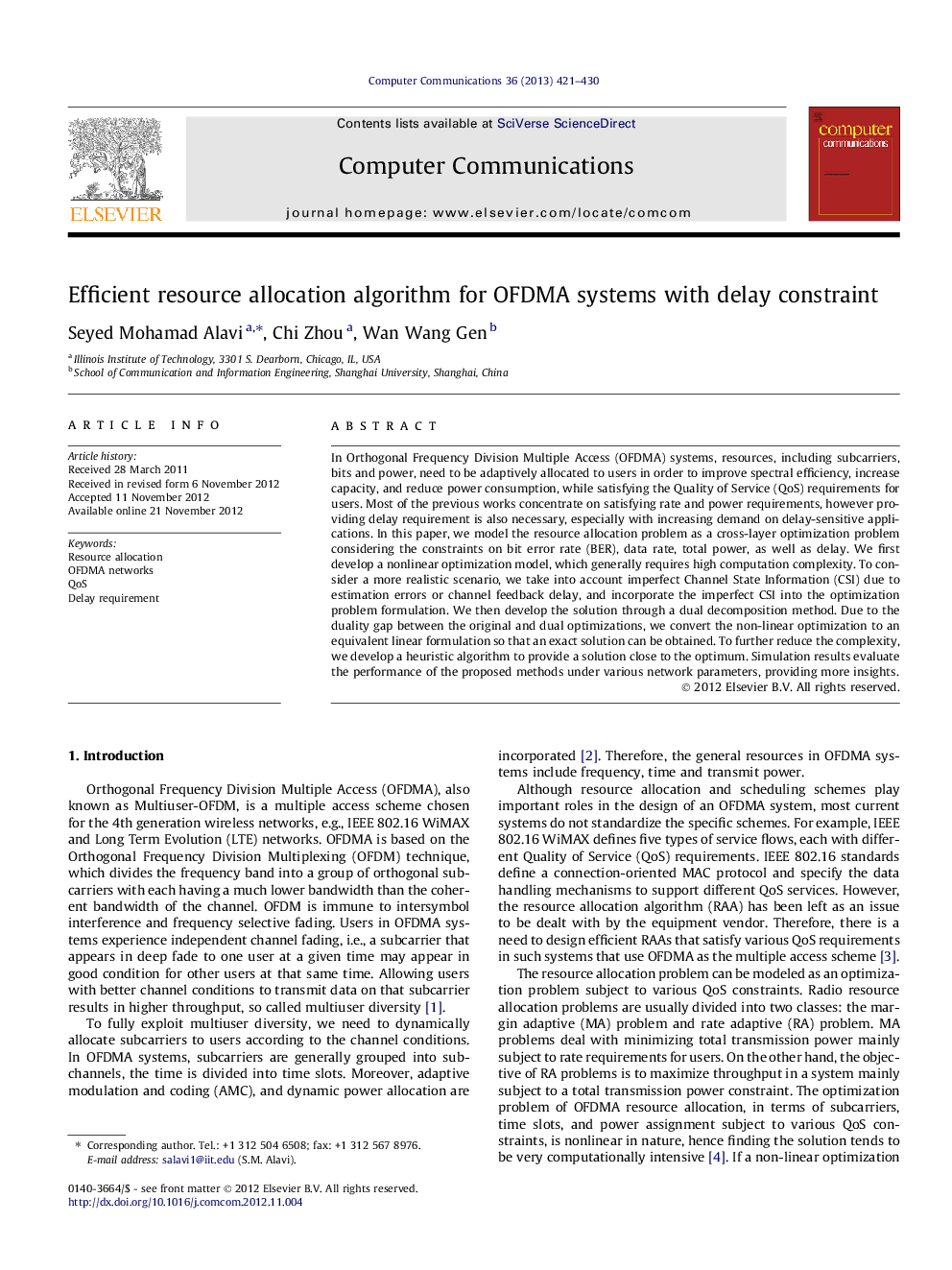| Article ID | Journal | Published Year | Pages | File Type |
|---|---|---|---|---|
| 446051 | Computer Communications | 2013 | 10 Pages |
In Orthogonal Frequency Division Multiple Access (OFDMA) systems, resources, including subcarriers, bits and power, need to be adaptively allocated to users in order to improve spectral efficiency, increase capacity, and reduce power consumption, while satisfying the Quality of Service (QoS) requirements for users. Most of the previous works concentrate on satisfying rate and power requirements, however providing delay requirement is also necessary, especially with increasing demand on delay-sensitive applications. In this paper, we model the resource allocation problem as a cross-layer optimization problem considering the constraints on bit error rate (BER), data rate, total power, as well as delay. We first develop a nonlinear optimization model, which generally requires high computation complexity. To consider a more realistic scenario, we take into account imperfect Channel State Information (CSI) due to estimation errors or channel feedback delay, and incorporate the imperfect CSI into the optimization problem formulation. We then develop the solution through a dual decomposition method. Due to the duality gap between the original and dual optimizations, we convert the non-linear optimization to an equivalent linear formulation so that an exact solution can be obtained. To further reduce the complexity, we develop a heuristic algorithm to provide a solution close to the optimum. Simulation results evaluate the performance of the proposed methods under various network parameters, providing more insights.
